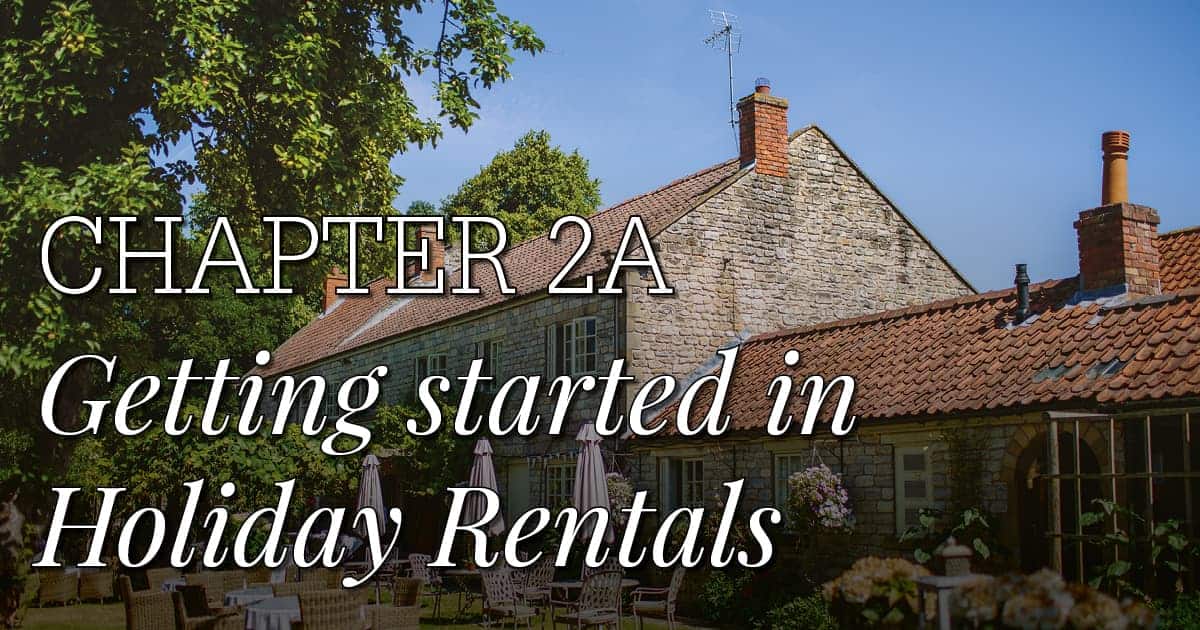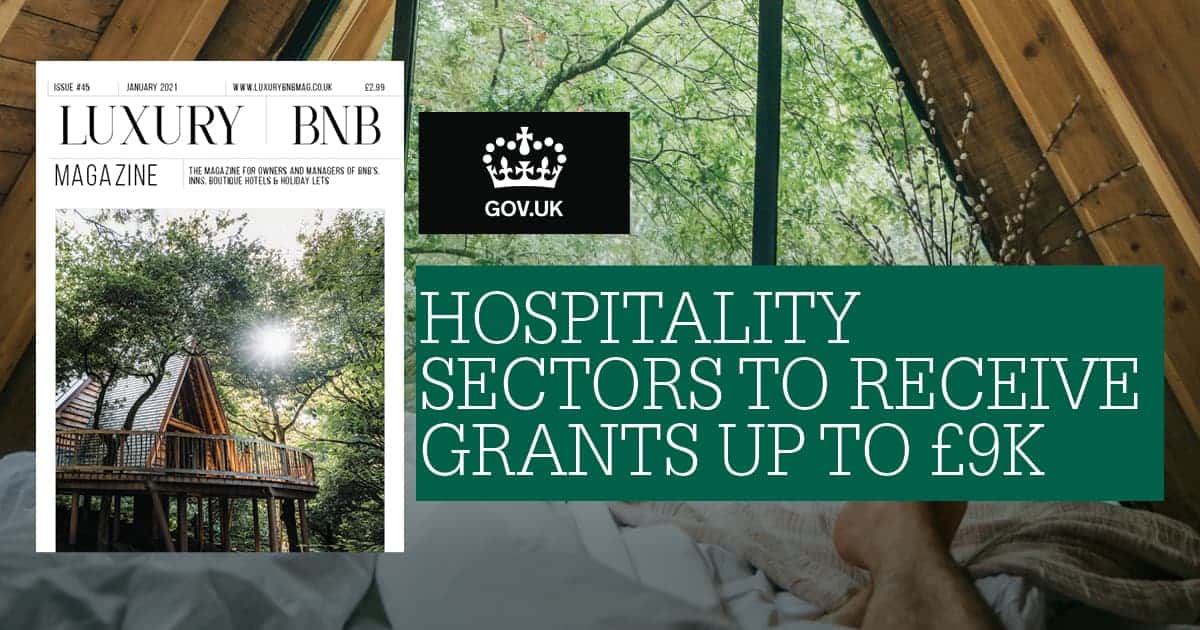
An ebook by the Luxury BnB Team for those who want to set up their own holiday let / holiday accommodation business.
By Abbey Warne and Dominic Johnson
Welcome to Chapter 2A of our new ebook which will provide you with everything you need to know about setting up your own rental property. We once again have some fantastic content to help you on your way. This chapter will take you step-by-step through the process of creating a business plan, and the legal entities you will need to consider.
WRITING A BUSINESS PLANS FOR YOUR NEW HOLIDAY BUSINESS
The first section will provide you with all the advice you need to create an effective business plan. This will include all the important points you will need to consider, and we have even provided you with a handy example.
Info from Matt Bryant at ZigZag Accountants:
Creating a business plan
• As with any funding, you will need to provide a detailed, robust business plan.
• It includes your estimated incomings and outgoings, optimistic as well as conservative.
If you are looking at buying an established Holiday Rental, a lot of the groundwork will have been done for you and revenue stream information should be immediately accessible for you.
However, there’s a vast amount of information you will need to look for and understand.
You will need to consider the following:
• The cash flow for the business
• Capital investment: IT systems, refurbishment costs
• What the operating costs of the business are
• The key systems that are already in place to run the business
• The suppliers that have already been sourced
• If there will be training/support after the sale
• The legal requirements for running the business
Note: If you are taking over an existing business, then you will still need to do more background research to find these out.
Hiring an Accountant
For the financial part of the business plan it is recommended that you seek advice and support from an accountant who has experience in preparing a business plan and in helping businesses raise finance.
Why you should seek advice from an accountant:
In the first few months, any time not directly spent growing the company is time lost.
• By hiring an accountant, you save time and have peace of mind knowing that your books are being handled by someone you can trust.
• Accountants are business advisors too and serve as an invaluable resource as your company continues to develop.
EXAMPLE BUSINESS PLAN FOR A HOLIDAY LET BUSINESS:
A very simple plan used to secure a mortgage
Introduction
I wish to purchase a property in [X location]. My idea is to initially rent out the property as a short-term holiday let
Details of the property:
I plan to pay [£X] for the property. The property is in an excellent location and order. There is no work required on the property and it is currently operating as a short-term holiday rental property.
Existing Revenue Figures:
The figures below are actual figures (using public information):
| Month | Days | Rate | Rev |
| January | 6 | £90.57 | £543.43 |
| February | 2 | £100.57 | £201.14 |
| March | 11 | £100.57 | £1,106.29 |
| April | 17 | £116.29 | £1,976.86 |
| May | 7 | £116.29 | £814.00 |
| June | 11 | £136.29 | £1,499.14 |
| July | 19 | £136.29 | £2,589.43 |
| August | 30 | £116.29 | £3,488.57 |
| September | 3 | £116.29 | £348.86 |
| October | 6 | £100.57 | £603.43 |
| November | 6 | £90.57 | £543.43 |
| December | 4 | £770.29 | £3,081.14 |
| £16,795.71 |
Running Costs
Cleaner / Advertise: £100
per booking = £2k/year
Maintenance: £50 per month
Services: £100 per month
Total: £3,800 / year
Release: £12,995.71
Finance of Purchase
Savings: £ N
Business loan on property: £ N
Re-Mortgage on family home: £ N
Conclusion
I feel this business proposal is very low risk. Revenue figures on this place are currently relatively low due to poor marketing and presentation. We believe we can at the very least maintain this level and are confident we can increase it. The property is in [X location] which is a very popular area and has consistent rental opportunities.
Personally we have residual money left every month to cover the loan repayment even with £0 rental income.
I feel as a husband and wife team, we are very well placed to make an excellent holiday let business. [Partner A]’s eye for details and knowledge of the market is second to none. They have an excellent contact list of trade people and have led many large projects.
[Partner B] is an expert in branding and online marketing and has run a successful web design business for 15 years.
LEGAL ENTITY OF A HOLIDAY LET PROPERTY
This section will introduce you to Legal Entity, and will explain what Partnerships and Limited Companies are, and the benefits of each.
Info from Matt Bryant at ZigZag Accountants
Deciding on whether you trade as a Partnership or Limited Company will depend on a range of different factors, including:
• Tax considerations
• Legal requirements
Identifying the pros and cons so that you have a good grasp of the difference between a Partnership and Limited Company, is an essential part of the process of business planning.
Why making the right choice matters:
• Making the right choice can ensure optimum efficiency.
• It provides key protections and makes it simpler for your business to grow.
• It can be useful to discuss this with an accountant before you make the choice.
Partnership vs. Limited Company
What is a Limited Company?
• A limited company is a vehicle ideally designed for running a business.
• It’s one of the most popular choices because it can provide clarity and protection that other legal entities may not.
There are several benefits to opting for a limited company, including:
• Personal liability is minimised, as a limited company is a separate legal entity.
• Shareholders will only be liable for any unpaid amounts owed on shares.
• In most circumstances the company’s debts belong to the company.
• The individuals who run it won’t be responsible for paying the debts unless it can be proven that there has been a situation of negligence or fraudulent situations.
| Benefits of a Limited Company | Benefits of a Partnership |
| Credible Structure • A limited company is a very credible structure • If you’re looking to create a professional impression, it’s a simple way to establish trust. |
No Filing Requirements • There are no filing requirements for a traditional partnership and no need to register at Companies House. |
| Investment Management • It’s easier to manage investment in your business via a limited company. • In fact, some investors may not be willing to put cash into the enterprise, unless it is structured in this way. |
Clear Business Structure • You can draw up a partnership agreement that makes the business structure clear and identifies the roles and responsibilities that each partner has. |
| Tax Efficiency • A limited company may be more tax efficient. • Shareholders are only taxed on what they withdraw from the company, as opposed to their share of its profits. |
Tax Efficiency • Partnerships may be more tax efficient. • It depends on individual circumstances but there can be tax benefits to a partnership. |
| Partnership Liability • If you set up a partnership all the partners will have joint and several liability. • This means each one is liable for the entire debt of the business if something goes wrong. |
OTHER THINGS TO CONSIDER
Convenience:
• For some, the partnership vs limited company decision may come down to convenience.
• A limited company is a more complex structure than a straightforward partnership.
Filing Requirements:
• There are filing requirements and limited companies must publish annual accounts.
Separate Legal Entities:
• The key difference between a partnership and limited company is often identified as the fact that a company is a separate legal entity.
What is a partnership:
• In a partnership the partners own the business and are responsible for any liabilities it has.
SUMMARY OF CHAPTER 2A
This brings Chapter 2A to a close, and we hope that we have made the process of writing up the business plan and understanding the legal entities involved a little bit easier for you.
The next Chapter (2B) will explain the key parts of finance, which include the different types of borrowing available and how to get the right support. It will also introduce you to release from the pension pot and self-investment.



